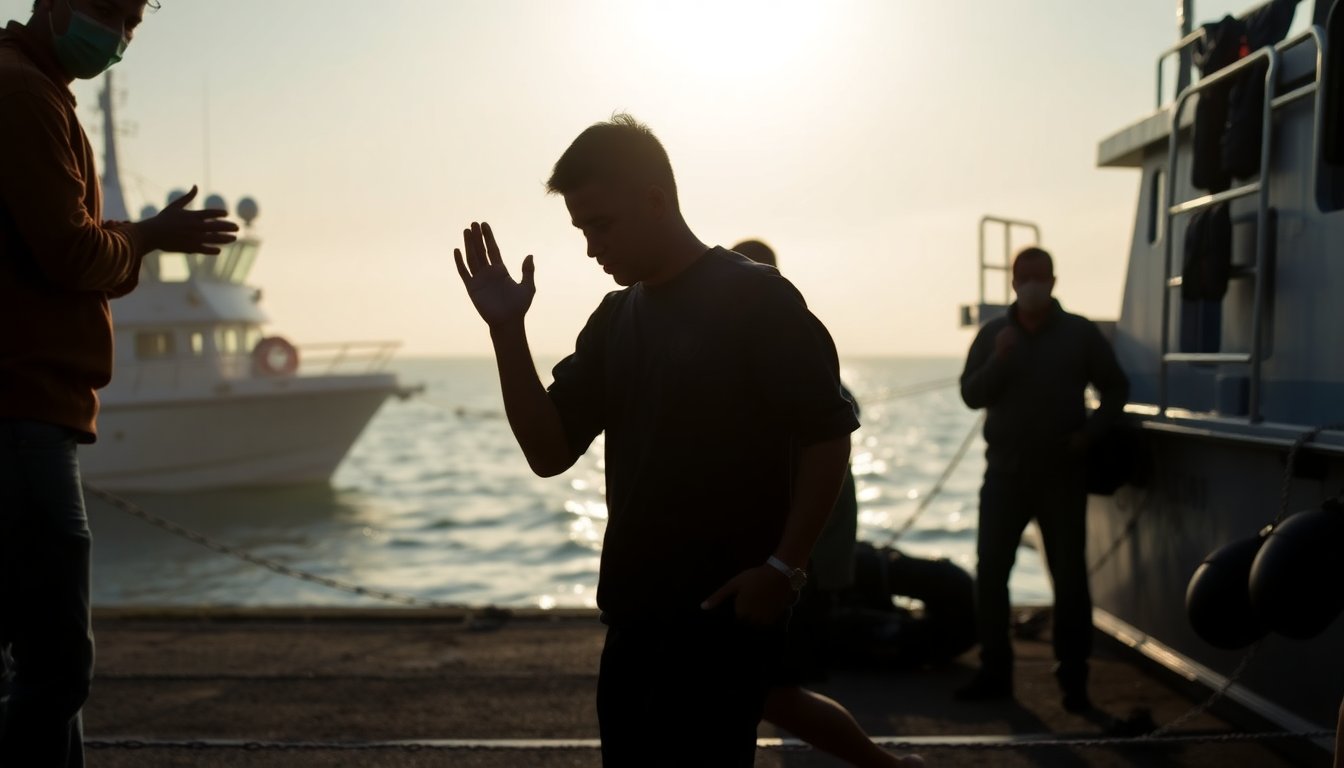Table of Contents
In a significant move, the United States government has decided to facilitate the return of two survivors from a recent military strike involving a suspected drug trafficking vessel. This decision aims to prevent a potentially complicated legal situation in U.S. courts. The identities of the individuals have not been disclosed. They will be repatriated to their home countries, Colombia and Ecuador.
This incident underscores the ongoing challenges nations face in combating drug trafficking, especially in international waters where jurisdiction can be unclear. By opting for repatriation rather than pursuing a legal battle, the U.S. seeks to streamline the process while maintaining diplomatic relations with South American nations.
Context of the military strike
The military operation that led to the rescue of these individuals was part of a broader initiative aimed at tackling drug smuggling. The U.S. Navy and Coast Guard frequently conduct operations designed to intercept vessels suspected of transporting illegal narcotics. These efforts are critical in the fight against drug-related crime, which poses significant threats to both regional and global security.
Legal implications of the operation
If the survivors had been brought to the United States, they could have faced a lengthy legal process. U.S. courts often deal with complex cases involving international law, particularly concerning drug offenses. Jurisdiction issues and international maritime laws could have resulted in protracted legal proceedings, complicating matters for all parties involved.
By choosing to repatriate the survivors, the U.S. government is expediting the process and reinforcing diplomatic ties with Colombia and Ecuador. This decision reflects a commitment to international cooperation in addressing drug trafficking and its associated challenges.
International relations and cooperation
Repatriation serves a dual purpose. It alleviates potential strain on the U.S. legal system, allowing authorities to focus on more pressing matters. It also fosters goodwill between the U.S. and the involved countries. Maintaining positive diplomatic relations is essential for collaborative efforts to combat drug-related issues.
Future implications for drug trafficking efforts
As the U.S. continues to engage in operations targeting drug trafficking, the outcomes of such incidents may shape future strategies. The ability to repatriate individuals involved in these operations could become standard practice, facilitating more efficient handling of similar cases. This approach may deter drug traffickers who might perceive increased risks associated with their activities.
Furthermore, by addressing the root causes of drug trafficking through international collaboration, the U.S. and its partners can work towards more sustainable solutions. This includes supporting anti-drug initiatives in Colombia and Ecuador, which are often at the forefront of the drug trade.
The decision to repatriate the survivors of the recent military strike against a suspected drug vessel highlights the complexities of international law and drug trafficking. By sending these individuals back to Colombia and Ecuador, the U.S. navigates a challenging landscape while striving to maintain strong diplomatic relations and effective anti-drug policies.


